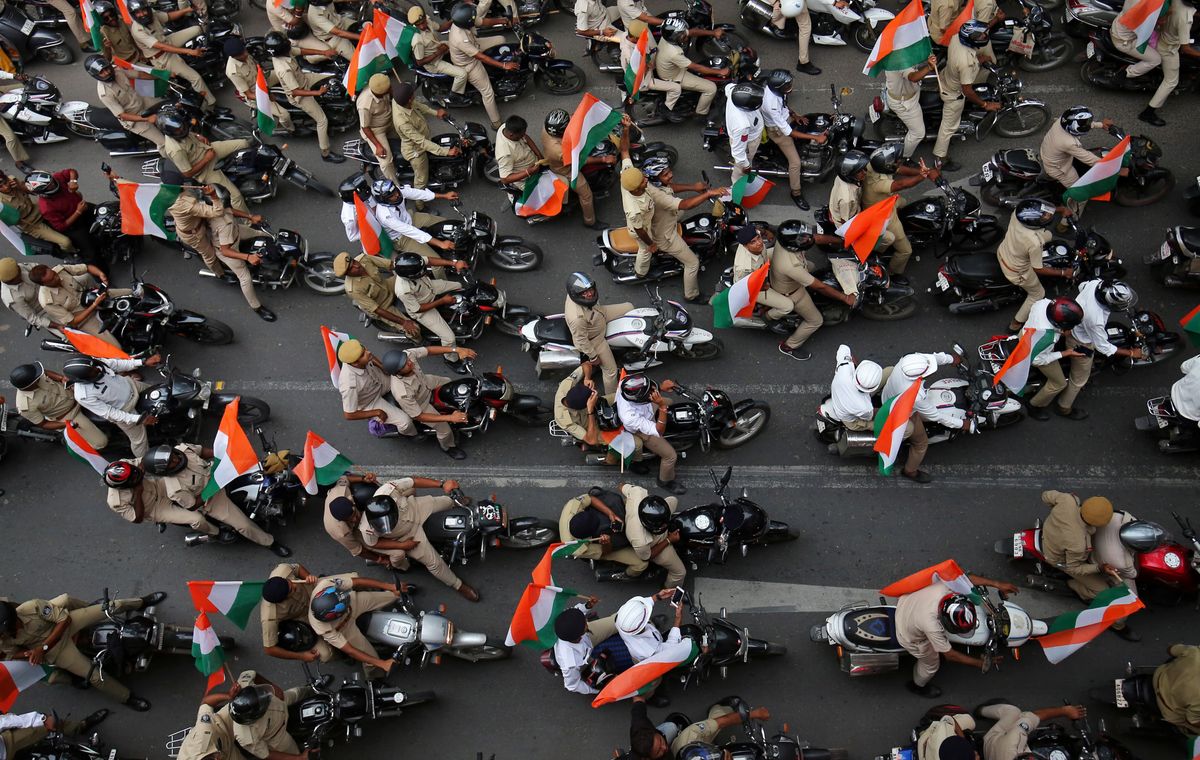Today, India turns 71. On August 15, 1947 the UK officially turned over its colonial holding in British India and brought into existence the two separate countries of India and Pakistan. Just five years later, in 1952, voters across the newly-born nation of India cast ballots in its first ever election. Some 176 million citizens, 85 percent of whom could neither read nor write, were eligible to participate in the vote.
Since then, India’s democracy has withstood the test of time. It’s in many ways an unlikely story.
The sprawling nation of more 1.3 billion people is riven by divisions of language, class, and religion. The constitution recognizes 22 separate major languages that are spoken by at least one million people. A majority Hindu nation, India also boasts the world’s second largest Muslim population, outstripped only by Indonesia. The vestiges of the hierarchical caste system, long since outlawed, continue to limit people’s educational, career, and life prospects.
Despite these hurdles, the country has experienced seven decades of almost uninterrupted democratic rule. Today, around 5 percent of Indians live in extreme poverty, down from a high of 60 percent just four decades ago. The administration of current Prime Minister Narendra Modi has made important strides in expanding access to electricity, healthcare, and sanitation.
There is plenty of work left to do. The share of income accruing to the top 1 percent, a broad measure of inequality, is the highest since tax collection began in 1922. Many find worrisome current Modi’s push to move India away from its secular roots toward a new brand of democracy based around identification with its Hindu cultural and religious history. The government’s recent threat to strip 4 million people, many of whom are migrants from the predominantly Muslim Bangladesh, of their citizenship demonstrates the danger.
Despite these challenges, at a moment when democracy is increasingly in question and under threat around the world, India’s largely successful effort over the past seven decades to reconcile the competing identities and passions of over 15 percent of the world’s population is a staggering accomplishment.


















